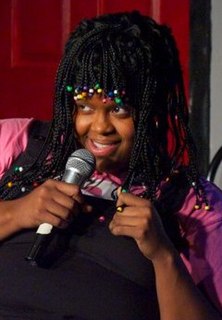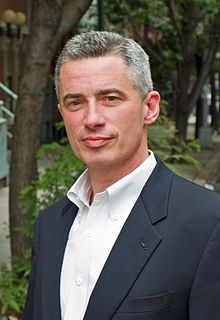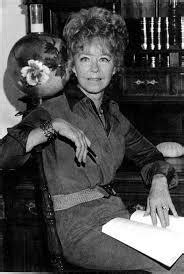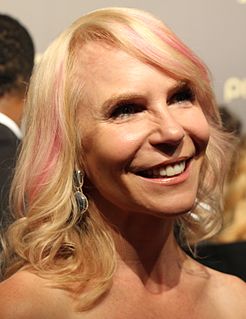A Quote by Marilyn Manson
I think people have always misinterpreted my self-destructive nature as nihilistic, because if you don't care about the world, you can't create art. I am misanthropic and self-loathing, but never nihilistic. And I think I act far worse off-stage than onstage.
Related Quotes
My background is such that I am uneasy about religious laws, I think there's always a real danger when you start appealing to a higher authority. It's self-righteousness, it's not righteousness, it's self-righteousness that takes control. But I think that it's absolutely crucial that that's not confused with the debate that takes place over Shari'a law in Great Britain at the moment. Because as far as anybody is concerned, when you talk about Shari'a courts now you're talking about - I don't know what people think.
I close my eyes and I take a deep breath and I think about my life and how I ended up this way. I think about the ruin, devastation and wreckage I have caused to myself and to others. I think about self-hatred and self-loathing. I think about how and why and what happened and the thoughts come easily, but the answers don't.
When one crosses over from an activity, or the verb, of writing or doing, and becomes a noun, like "a writer" I think that is an act of supreme self-consciousness that I've never, in effect, made. I write, but I don't like to think of myself as a writer. I think it's somewhat self-aggrandizing and pretentious. Now, I am a teacher.
I'm fascinated by what makes up a self, how one becomes a self, how much is it an answer to others and how much is it an essence of self. We learn how to be people from other people. Then you think - what's personal freedom? Is self-creation possible? This book is dedicated to a friend of mine who really did re-create herself. I didn't do that - I stayed in the circus and am a circus performer like my parents were. I did what I was raised to do - I'm glad I did but I'm fascinated by the people who managed to do something else. I was always very curious about other people.
Like, your body has to get used to being in front of people. Like - and you have to be like - you have to be kind of a ham, you know? Like, the thing about writers is they're generally self - comedy writers - self-loathing, sort of play small. And as a, like, performer, you have to think like a comedy writer but act like a performer.
The saying "no self, no problem" probably comes from Zen. In their cultures, where Buddhism is kind of taken for granted, as well as karma, causality, former and future life, and the possibility for becoming enlightened, then it's safe to skirt the danger of nihilism, which would be, I don't exist because Buddha said I have no self, and therefore I have no problem because I don't exist. That would be a bad misunderstanding. But in those cultures, it would not be as easy to have that understanding as it would be here in the west, where we really are nihilistic.



































